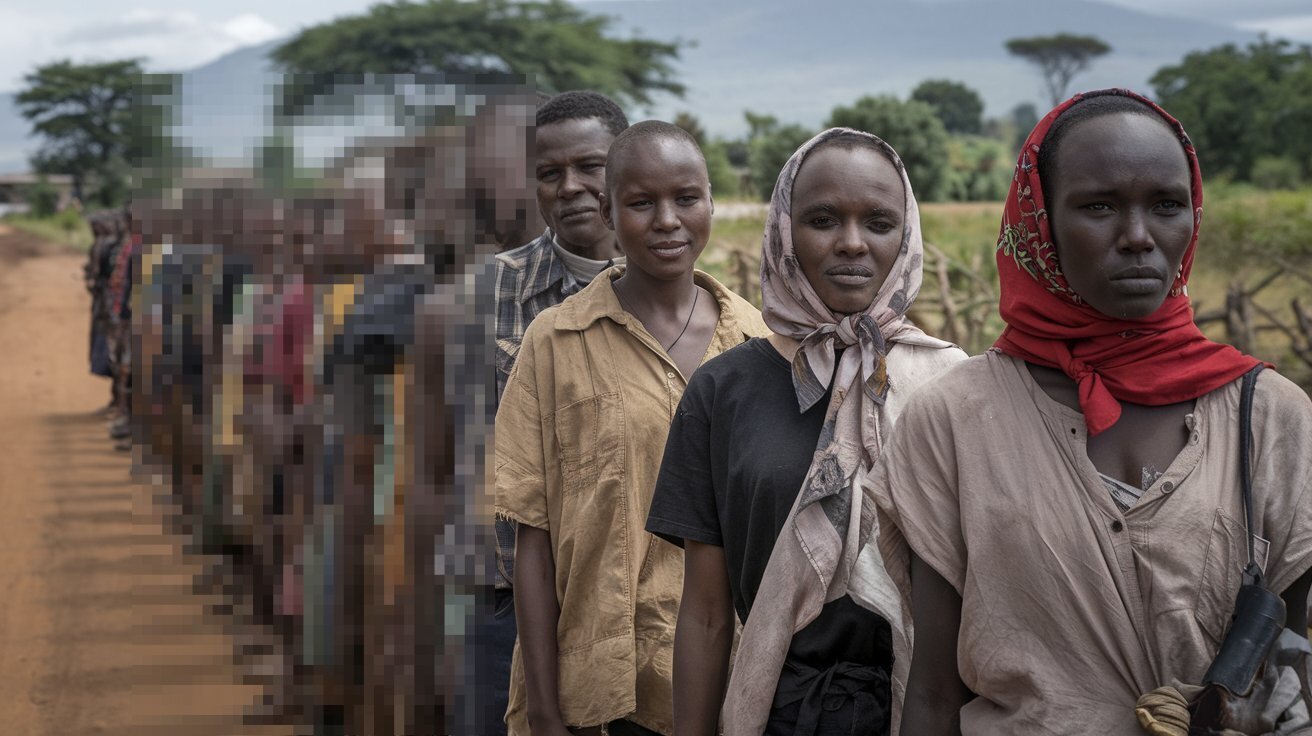
Mungiki, a secretive and controversial group in Kenya, has captured global attention for its mysterious origins and activities. What is Mungiki? Mungiki is a Kikuyu word meaning "multitude" or "masses." This group, often described as a sect, emerged in the 1980s and has been linked to various criminal activities, including extortion and violence. Despite its notorious reputation, Mungiki also claims to advocate for the rights of marginalized communities, blending traditional beliefs with modern political activism. Understanding Mungiki requires delving into its complex history, cultural significance, and the socio-political landscape of Kenya. This post will unravel 35 intriguing facts about Mungiki, shedding light on its enigmatic presence.
Key Takeaways:
- Mungiki, a group rooted in Kikuyu traditions, evolved into a militant force with political ties, impacting Kenyan society. Its future depends on broader societal changes.
- Despite government crackdowns, Mungiki continues to operate covertly, with fragmented leadership. Its influence remains potent in certain areas, sparking debates about poverty and governance.
Origins of Mungiki
Mungiki, a controversial and secretive group, has a complex history rooted in Kenya. Let's explore some intriguing facts about its origins.
- Mungiki means "multitude" in Kikuyu, reflecting the group's large following.
- The group emerged in the 1980s among the Kikuyu people, Kenya's largest ethnic group.
- Initially, Mungiki was a cultural and religious movement aiming to revive Kikuyu traditions.
- The founders were inspired by the Mau Mau rebellion, a significant anti-colonial movement in Kenya.
- Mungiki's early activities included promoting traditional Kikuyu customs and opposing Western influences.
Evolution into a Militant Group
Over time, Mungiki's focus shifted from cultural revival to militancy and politics. Here are some key facts about this transformation.
- By the late 1990s, Mungiki had become more militant, engaging in violent activities.
- The group began to control informal settlements in Nairobi, imposing taxes and providing security.
- Mungiki members often clashed with police and rival gangs, leading to numerous deaths.
- The group was linked to political violence, especially during election periods.
- Mungiki's influence grew as it provided services like water and electricity in slums.
Beliefs and Practices
Mungiki's beliefs and practices are a blend of traditional Kikuyu customs and radical ideologies. Let's delve into some of these.
- The group practices traditional Kikuyu rituals, including circumcision and oathing ceremonies.
- Mungiki members reject modern hairstyles, opting for dreadlocks as a symbol of their identity.
- They oppose Christianity and Western education, viewing them as colonial impositions.
- The group believes in the power of ancestral spirits and often conducts rituals to honor them.
- Mungiki's strict code of conduct includes severe punishments for those who break their rules.
Political Connections
Mungiki's involvement in politics has been both overt and covert. Here are some facts about their political connections.
- The group has been accused of being used by politicians to intimidate opponents.
- During the 2007-2008 post-election violence in Kenya, Mungiki was implicated in numerous attacks.
- Some politicians have allegedly funded Mungiki to secure votes and maintain control in certain areas.
- The group has also been involved in land disputes, often siding with powerful political figures.
- Despite government crackdowns, Mungiki's political influence remains significant in some regions.
Government Crackdown and Public Perception
The Kenyan government has made several attempts to dismantle Mungiki, but public perception of the group is mixed. Let's look at some related facts.
- In 2002, the Kenyan government officially banned Mungiki, labeling it a criminal organization.
- Numerous police operations have been conducted to arrest and prosecute Mungiki members.
- Human rights organizations have accused the police of extrajudicial killings in their efforts to combat Mungiki.
- Some Kenyans view Mungiki as protectors who provide essential services in neglected areas.
- Others see the group as a violent gang that exploits and terrorizes communities.
Mungiki's Impact on Society
Mungiki's activities have had a profound impact on Kenyan society. Here are some ways the group has influenced various aspects of life.
- The group's control over informal settlements has led to the creation of parallel governance structures.
- Mungiki's involvement in the transport sector includes extorting money from matatu (minibus) operators.
- The group's violent methods have instilled fear in many communities, affecting daily life.
- Mungiki's presence has led to increased police presence and security measures in affected areas.
- The group's activities have sparked debates about poverty, governance, and the role of informal groups in society.
Current Status and Future Prospects
Mungiki's current status and future prospects remain uncertain. Here are some facts about where the group stands today.
- Despite crackdowns, Mungiki continues to operate in some parts of Kenya, albeit more covertly.
- The group's leadership has fragmented, with some factions pursuing different agendas.
- Mungiki's influence has waned in recent years, but it remains a potent force in certain areas.
- Efforts to reintegrate former Mungiki members into society have had mixed results.
- The future of Mungiki depends on broader social, economic, and political changes in Kenya.
Final Thoughts on Mungiki
Mungiki, a secretive and controversial group in Kenya, has a complex history. Known for its roots in traditional Kikuyu culture, the group has evolved into a significant political and social force. Despite its original intentions to preserve cultural heritage, Mungiki has been linked to criminal activities, including extortion and violence. Understanding Mungiki requires looking at its cultural, political, and social dimensions.
The group's influence has waned in recent years due to government crackdowns and internal conflicts. However, its legacy remains a topic of discussion in Kenya. Mungiki's story is a reminder of how cultural movements can transform and impact society in unexpected ways. By examining Mungiki, we gain insights into the challenges and complexities of modern Kenyan society. This knowledge helps us appreciate the delicate balance between tradition and progress.
Frequently Asked Questions
Was this page helpful?
Our commitment to delivering trustworthy and engaging content is at the heart of what we do. Each fact on our site is contributed by real users like you, bringing a wealth of diverse insights and information. To ensure the highest standards of accuracy and reliability, our dedicated editors meticulously review each submission. This process guarantees that the facts we share are not only fascinating but also credible. Trust in our commitment to quality and authenticity as you explore and learn with us.


